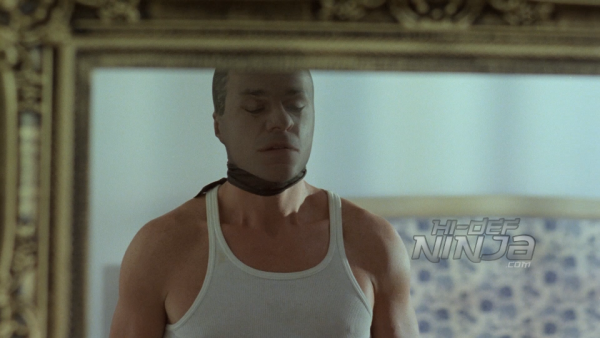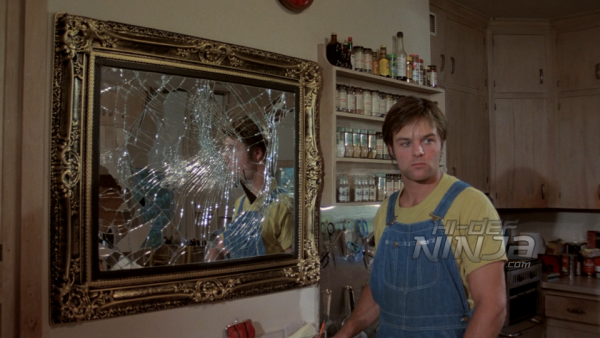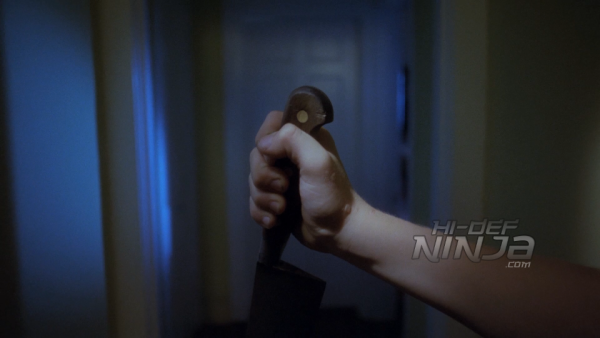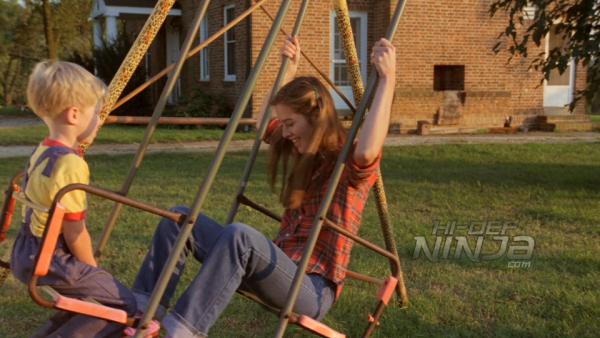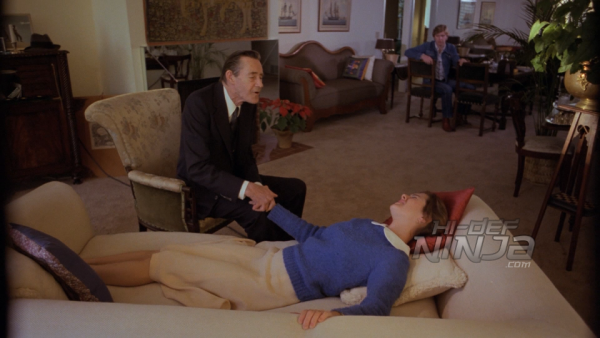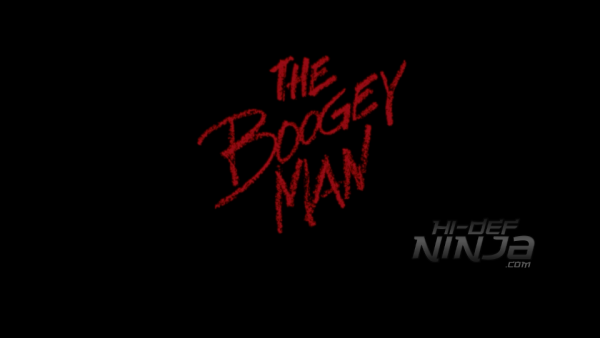 In this ’80s slasher-sickie, the spirit of a sleazy psycho-sexual madman is trapped in a mirror during the night of his death. Years later, this evil entity is freed when the glass is destroyed – allowing our invisible prowler to slice and dice his way through a bevy of helpless teenagers and the family of the people who caused his untimely demise.
In this ’80s slasher-sickie, the spirit of a sleazy psycho-sexual madman is trapped in a mirror during the night of his death. Years later, this evil entity is freed when the glass is destroyed – allowing our invisible prowler to slice and dice his way through a bevy of helpless teenagers and the family of the people who caused his untimely demise.
Dear oh dear. Where do I start with this? Opening with a woman and her kinky lover getting up to a bit of naughtiness, we see two children, Lacey and Billy, spying on proceedings. After they are chastised by the woman (who turns out to be the mother), her lover, wearing tights over his head for whatever reason, brings the children into their room and ties Billy to his bed. Lacey gets a knife from the kitchen and cuts Billy free. Billy then enters the mother’s bedroom and stabs the man to death, which is how his soul becomes trapped in the mirror.
How his soul becomes trapped is never really explained; it just happens. Fast forward twenty years later, Lacey and Billy are all grown up. Lacey has a son of her own and Billy is a mute after the effects of the murder. When the same mirror that contains the trapped soul is smashed (seriously, why didn’t they just get rid of the mirror?), the spirit is released and goes on a killing spree, murdering random teenagers and targeting Lacey’s family. Lacey becomes possessed now and again by the spirit, acting very strangely, which prompts the family to call a doctor (played by John Carradine) and a priest (played by Llewelyn Thomas) who try to help Lacey and exorcise the spirit.
The problem here is it’s all very uninteresting. The script is written by the director, Ulli Lommel, and Suzanna Love, who plays Lacey, who were actually married at the time. The film lacks any real coherence and people do things that just seem downright idiotic, which some may argue is a staple of horror cinema anyway. The fact that this film has a sequel also starring Suzanna Love and also directed by Ulli Lommel is baffling to say the least. This was made around the same time as HALLOWEEN and THE AMITYVILLE HORROR, which were both very popular with audiences, so one gets the impression that this was the sort of atmosphere the director was going for. Sadly, he fails miserably. Watching it, I didn’t feel any sense of dread and it’s probably no surprise to learn that Suzanna Love abandoned the movie scene after making her last film in 1991.
I find that film labels such as 88 Films and Arrow Video have a mixed bag in terms of releases. There are certain films that both companies release that really should be left in VHS hell. Sadly, I can find nothing to recommend here, and this is probably one you should pass on.
The picture is presented in 1080p HD 1.78:1 format, which for the most part is clear enough. There wasn’t any edge enhancement that I could see, however there where instances where the picture lost focus, mainly during the indoor scenes at Lacey’s home. Whether this is an original aspect from the film or a by product of the remastering process is unclear.
The audio is presented in DTS-HD MA Stereo and comes through speakers loud and clear without the need to really have the volume turned up. I had the volume as low as 7 and it was still sharp enough to hear background noise over the dialogue.
Included in the extras are an interview with director Ulli Lommel where he discusses his early career. It runs for 17mins 42secs. Also included is a trailer, 2mins 5secs, and a TV spot which is 1min 2secs. Rounding the disc extras off is a short stills gallery which runs for 1min 31secs. Included inside the case is a small booklet which contains an interview with Suzanna Love conducted by Calum Waddell.
Overall, not something I would recommend. It is a decent enough package with the extras that are included, but the film is just not good enough to warrant being in someone’s collection.
Jonathan McEvoy


